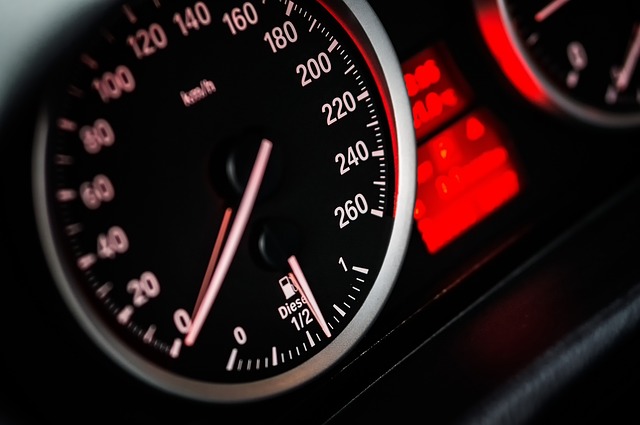Learn how to register your car in California with our comprehensive guide. From understanding the state’s unique process to gathering necessary documents, we’ll walk you through every step. This includes navigating the crucial VIN verification process, ensuring a smooth and efficient registration experience. Discover what paperwork is required, where to submit it, and essential follow-up steps post-registration. Optimize your journey with these insider tips tailored for California drivers.
- Understanding the California Car Registration Process
- Preparing for VIN Verification: What You Need to Know
- Steps Involved in Registering a Vehicle in California
- Documents Required for California Car Registration
- Post-Registration: Important Follow-Up Steps and Considerations
Understanding the California Car Registration Process

Understanding the California Car Registration Process
Registering a car in California involves several key steps designed to ensure vehicle safety and track ownership. The process begins with a thorough vin verification, where the unique 17-digit Vehicle Identification Number (VIN) is cross-checked against state records. This critical step helps authenticate the vehicle’s history and identify any outstanding issues or recalls. In California, this vin inspection is typically conducted at a designated DMV office or through a mobile vin inspection service, offering convenience for busy individuals.
Once the VIN verification is complete and all necessary documents are gathered—including proof of ownership, insurance, and identity—you can proceed to pay the registration fees. The state provides clear guidelines on what documentation is required, ensuring a straightforward process. It’s important to note that specific requirements may vary based on vehicle type, age, and other factors, so consulting the California DMV website or seeking professional assistance for a mobile vin verification is advisable before initiating the registration.
Preparing for VIN Verification: What You Need to Know

Preparing for VIN Verification: What You Need to Know
Before you start the process of registering your car in California, it’s crucial to understand the importance of VIN (Vehicle Identification Number) verification. This critical step ensures that your vehicle is authentic and meets all necessary safety standards. A mobile vin verifier or a professional vin inspection can help streamline this process by providing accurate and quick results. During this verification, a detailed check is conducted using your car’s unique VIN to match it against manufacturer records and identify any potential issues or discrepancies.
Having all the required documents in order is essential for a smooth experience. This includes proof of ownership, vehicle registration papers, insurance documents, and valid identification. Additionally, having a clear understanding of California’s specific requirements for registration can save you time and avoid unnecessary delays. With these preparations in place, you’ll be well-equipped to navigate the VIN verification process successfully, marking a significant step towards legally registering your car in the Golden State.
Steps Involved in Registering a Vehicle in California

Registering a vehicle in California involves several steps that ensure proper documentation and compliance with state regulations. The process begins with gathering essential documents, including proof of ownership, valid identification, and current registration (if transferring from another state). Once prepared, the first step is to conduct a Vehicle Identification Number (VIN) verification. This crucial process confirms the vehicle’s authenticity and history through cross-referencing data with national databases.
After successful VIN inspection, which can be facilitated by using a mobile vin verifier or undergoing a traditional vin inspection at a designated location, you’ll need to visit a California Department of Motor Vehicles (DMV) office. Here, you’ll complete application forms, pay the registration fees, and provide additional documentation as required. The DMV will then issue a new registration certificate, updating the vehicle’s records in the state’s database. This ensures that your car is legally registered and ready for use on California roads.
Documents Required for California Car Registration

To register your car in California, you’ll need several key documents. One crucial step is completing a Vehicle Identification Number (VIN) verification process, which can be done through a mobile vin inspection or at a designated location. This involves confirming the vehicle’s details, including its make, model, and year, to ensure it matches the information on record with the California Department of Motor Vehicles (DMV).
In addition to the VIN verification, you’ll require essential paperwork such as proof of ownership (a title document or bill of sale), a valid driver’s license, and current auto insurance. It’s recommended to bring along all necessary documents to streamline the registration process, whether you opt for a mobile vin inspection or visit a DMV office in person.
Post-Registration: Important Follow-Up Steps and Considerations

After successfully registering your vehicle in California, there are several important follow-up steps to ensure everything remains in order and to protect your investment. One crucial step is conducting a thorough vin verification process. This involves checking the Vehicle Identification Number (VIN) for any discrepancies or potential issues that might affect the car’s history and safety. Utilizing a mobile vin verifier can simplify this task, as it allows you to perform a quick and convenient vin inspection right from your smartphone or computer.
Additionally, keeping detailed records of all maintenance and repair work is essential. This includes storing receipts, service invoices, and any documentation related to accidents or modifications made to the vehicle. Regularly updating your California Vehicle Registration with accurate information ensures that both you and law enforcement have access to reliable data in case of emergencies or during traffic stops.
Registering a car in California involves several key steps, including successful VIN verification. By understanding the process, gathering necessary documents, and completing all required checks, you can ensure a smooth registration experience. Remember to follow post-registration steps for continued compliance with state regulations. This guide provides a solid foundation for navigating the California car registration process, from start to finish.



